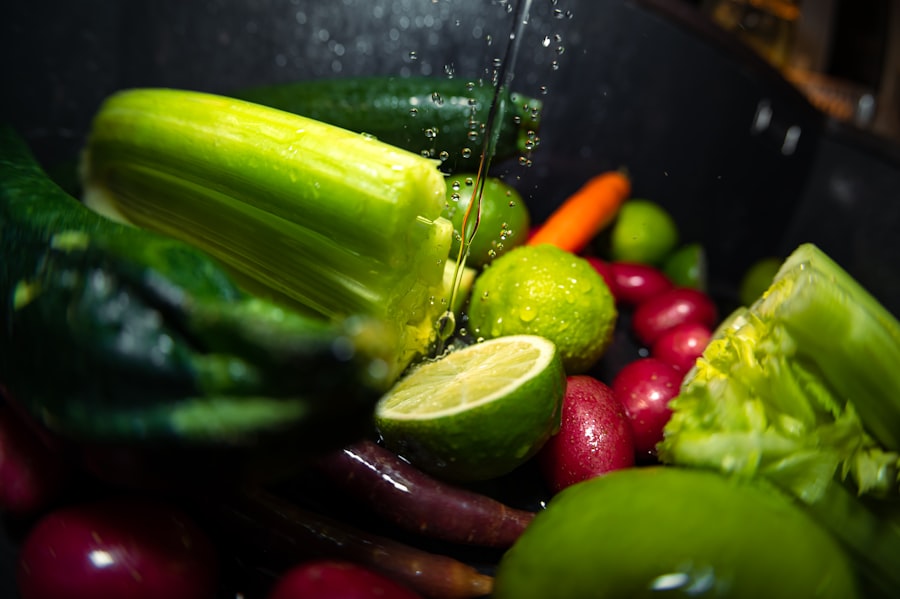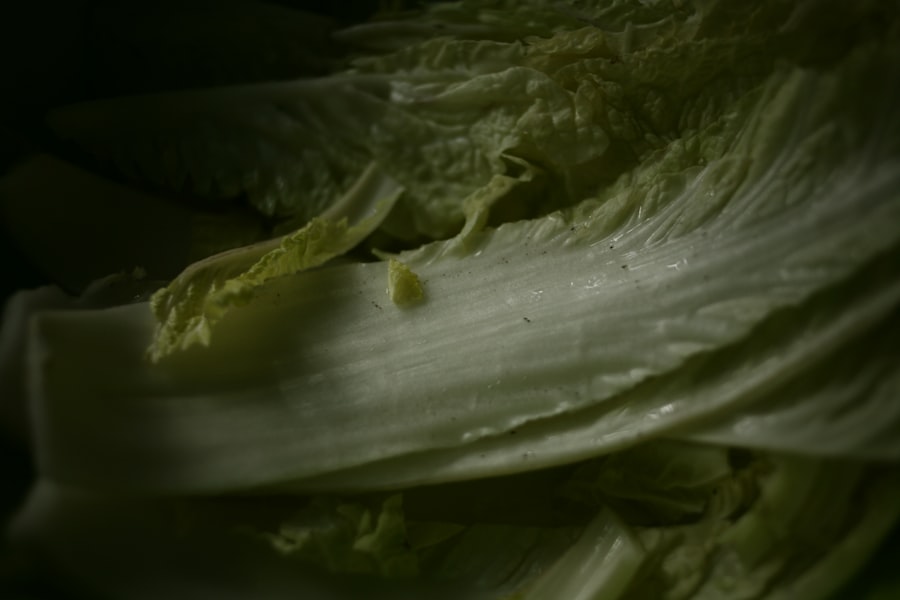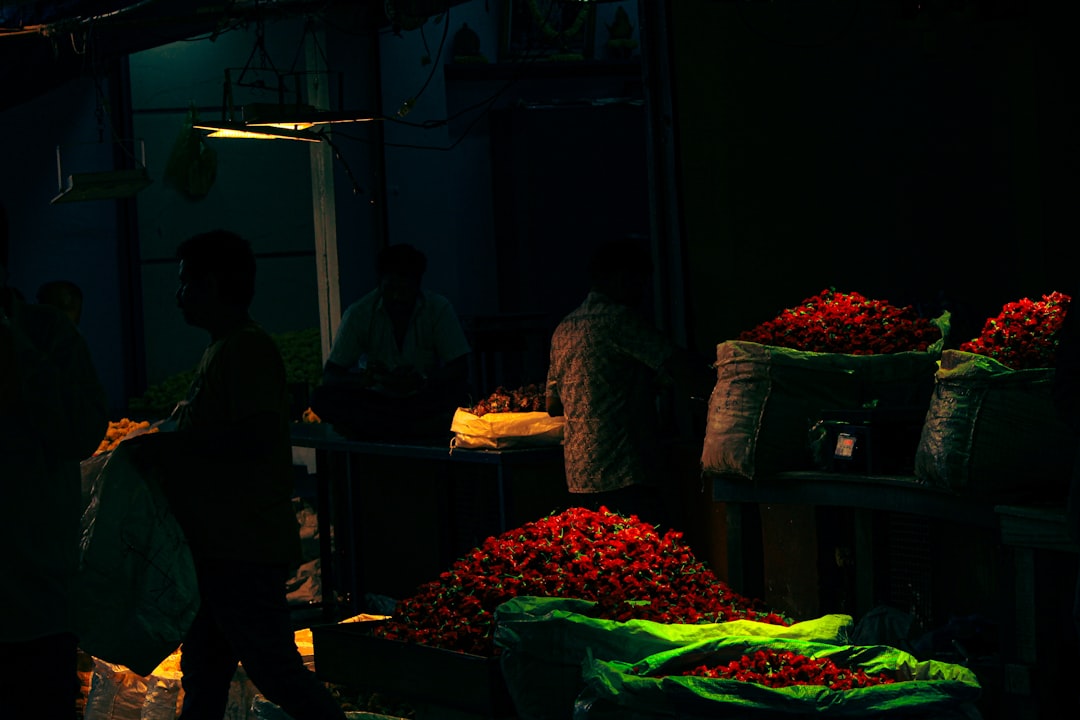Nightshade vegetables, belonging to the Solanaceae family, are a diverse group that includes tomatoes, potatoes, peppers, and eggplants. While these vegetables are staples in many diets around the world, they can cause adverse reactions in some individuals, particularly those with sensitivities or autoimmune conditions. If you find yourself experiencing discomfort after consuming nightshades, it’s essential to understand what they are and how to navigate your dietary choices effectively.
Nightshades contain alkaloids, which can be problematic for certain people. These compounds may contribute to inflammation and digestive issues, leading some to seek alternatives. However, it’s important to note that not everyone reacts negatively to nightshades; many enjoy their flavors and nutritional benefits without any adverse effects.
If you’re among those who need to avoid these vegetables, you’ll be pleased to know that there are plenty of delicious substitutes available that can help you maintain a varied and satisfying diet.
Key Takeaways
- Nightshade vegetables belong to the Solanaceae family and include tomatoes, potatoes, peppers, eggplants, and paprika.
- Alternatives to nightshade vegetables include sweet potatoes, squash, carrots, beets, and cucumbers for a nightshade-free diet.
- Nightshade-free cooking tips include using herbs and spices like turmeric, ginger, and garlic for flavor, and experimenting with different cooking methods like roasting and grilling.
- Nightshade-free alternatives for tomatoes include using red bell peppers, carrots, or beets in recipes that call for tomatoes.
- Nightshade-free alternatives for potatoes include using sweet potatoes, turnips, or rutabagas in place of regular potatoes in dishes like mashed potatoes or fries.
Nightshade-Free Cooking: Tips and Tricks
When embarking on a nightshade-free cooking journey, it’s crucial to embrace creativity in the kitchen. Start by exploring a wide range of vegetables that are not part of the nightshade family. Leafy greens, cruciferous vegetables like broccoli and cauliflower, and root vegetables such as carrots and beets can add color and nutrition to your meals.
Experimenting with different cooking methods—such as roasting, steaming, or sautéing—can also enhance the flavors of these alternatives. In addition to focusing on non-nightshade vegetables, consider incorporating herbs and spices that can elevate your dishes. Fresh herbs like basil, cilantro, and parsley can provide a burst of flavor without the need for nightshades.
Spices such as cumin, turmeric, and ginger can also add depth and warmth to your meals. By combining these elements thoughtfully, you can create satisfying dishes that are both nourishing and free from nightshades.
Nightshade-Free Alternatives for Tomatoes

Tomatoes are a beloved ingredient in countless recipes, but if you’re avoiding nightshades, you might be wondering what to use instead. One excellent alternative is roasted red peppers. They offer a sweet and smoky flavor that can mimic the taste of tomatoes in sauces and salsas.
You can easily blend roasted red peppers into a puree or chop them up for salads and sandwiches. Another option is using beetroot as a base for sauces or soups. When cooked and blended, beets provide a rich color and a slightly sweet flavor that can serve as a delightful substitute for tomato-based dishes.
Additionally, consider using pumpkin or squash puree in recipes that call for tomatoes; their creamy texture can create a satisfying consistency while adding a unique taste to your meals.
Nightshade-Free Alternatives for Potatoes
| Alternative | Nutritional Value | Preparation Method |
|---|---|---|
| Sweet Potatoes | High in Vitamin A and fiber | Bake, boil, or mash |
| Cauliflower | Low in calories and high in Vitamin C | Rice, mash, or roast |
| Rutabaga | High in Vitamin C and fiber | Boil, mash, or roast |
Potatoes are often considered a comfort food staple, but if you’re steering clear of nightshades, there are several alternatives that can satisfy your cravings. One popular substitute is sweet potatoes. They offer a naturally sweet flavor and can be prepared in various ways—mashed, baked, or even fried—to mimic traditional potato dishes.
Another great option is cauliflower. When steamed and mashed, cauliflower can create a creamy texture similar to mashed potatoes. You can also use it to make cauliflower rice or even pizza crusts.
By incorporating these alternatives into your meals, you can enjoy the comforting essence of potatoes without the potential drawbacks associated with nightshades.
Nightshade-Free Alternatives for Peppers
Peppers add vibrant color and flavor to many dishes, but if you’re avoiding nightshades, you might feel at a loss. Fear not; there are several alternatives that can bring similar zest to your meals. One such substitute is zucchini. When sliced or diced, zucchini can add a fresh crunch to salads or stir-fries while absorbing the flavors of the other ingredients. Another option is using carrots for their natural sweetness and crunch. Roasted or sautéed carrots can provide a delightful contrast in texture and flavor when used in place of peppers in various recipes. Additionally, consider using radishes for their peppery bite; they can be enjoyed raw in salads or cooked to soften their flavor.
Nightshade-Free Alternatives for Eggplants

Eggplants are often celebrated for their unique texture and ability to absorb flavors in dishes like ratatouille or baba ganoush. If you’re looking for nightshade-free alternatives, consider using mushrooms as a substitute. Their meaty texture makes them an excellent choice for grilling or roasting, providing a satisfying bite in place of eggplant.
Another alternative is zucchini or summer squash.
You might also explore using artichoke hearts; they offer a distinct flavor profile that can add depth to your dishes while remaining free from nightshades.
Nightshade-Free Alternatives for Paprika
Paprika is a spice derived from ground peppers and is often used to add color and flavor to dishes. If you’re avoiding nightshades but still want to achieve a similar taste profile, consider using smoked paprika alternatives made from spices like cumin or smoked salt. These options can impart a smoky flavor without the use of nightshades.
Another alternative is using turmeric for its vibrant color and earthy flavor. While it won’t replicate the exact taste of paprika, it can enhance your dishes with its warm hue and health benefits. Experimenting with different spice blends can also yield exciting results; combining spices like garlic powder, onion powder, and cayenne pepper can create a unique seasoning mix that adds depth to your meals.
Nightshade-Free Alternatives for Goji Berries
Goji berries are often touted for their health benefits but are classified as nightshades. If you’re looking for alternatives that provide similar nutritional value without the potential drawbacks of nightshades, consider using dried cranberries or blueberries. Both options offer natural sweetness and antioxidants while being versatile enough to incorporate into various dishes.
Another alternative is mulberries; they have a unique flavor profile and can be enjoyed dried or fresh. Incorporating these fruits into smoothies, salads, or baked goods can help you maintain a nutrient-rich diet while avoiding nightshades.
Nightshade-Free Alternatives for Ashwagandha
Ashwagandha is an adaptogenic herb known for its stress-relieving properties but falls under the nightshade category. If you’re seeking alternatives with similar benefits, consider using rhodiola rosea or holy basil (tulsi). Both herbs have adaptogenic qualities that may help support your body’s response to stress while being free from nightshades.
Another option is maca root; it’s known for its energy-boosting properties and can be added to smoothies or oatmeal for an extra nutritional punch.
Nightshade-Free Alternatives for Tobacco
Tobacco is another member of the nightshade family that many people may want to avoid due to its health risks. If you’re looking for alternatives that provide similar relaxation effects without the harmful consequences of tobacco use, consider herbal blends made from ingredients like chamomile or peppermint. These herbs can be enjoyed as teas or used in smoking blends that offer calming effects without the negative health implications associated with tobacco.
Additionally, consider exploring other natural herbs such as mullein or lavender; both have soothing properties and can be used in various forms to promote relaxation without resorting to tobacco products.
Nightshade-Free Recipes to Try at Home
Now that you have an understanding of nightshade-free alternatives, it’s time to put your knowledge into practice with some delicious recipes! Start with a roasted vegetable medley featuring sweet potatoes, zucchini, carrots, and cauliflower tossed in olive oil and your favorite herbs before roasting until tender and caramelized. For a hearty soup, try blending roasted red peppers with garlic, onion, vegetable broth, and coconut milk for a creamy texture reminiscent of tomato soup but entirely free from nightshades.
You could also whip up a refreshing salad with mixed greens topped with shredded carrots, sliced cucumbers, sunflower seeds, and a tangy lemon vinaigrette. By embracing these alternatives and experimenting with new ingredients in your cooking, you’ll discover that avoiding nightshades doesn’t mean sacrificing flavor or variety in your meals. With creativity and an open mind, you can enjoy delicious dishes that cater to your dietary needs while still tantalizing your taste buds!
If you’re looking to explore alternatives to nightshade vegetables, you might find the article on substitutes for these commonly avoided foods quite insightful. Nightshade vegetables, such as tomatoes, peppers, and eggplants, can sometimes cause inflammation or allergic reactions in certain individuals. For those seeking alternatives, the article provides a variety of options that can be easily incorporated into your diet without compromising on flavor or nutrition. To delve deeper into this topic, you can read more about it on Explore Senior Health.
Over 60? Ditch THIS Sneaky Veggie Wrecking Digestion, Bloating, and Microbiome Balance.
FAQs
What are nightshade vegetables?
Nightshade vegetables are a group of plants in the Solanaceae family, which includes tomatoes, potatoes, eggplants, and peppers. These vegetables contain alkaloids, which can cause adverse reactions in some individuals.
Why would someone need substitutes for nightshade vegetables?
Some people may have sensitivities or allergies to nightshade vegetables, or they may be following a specific diet that restricts the consumption of these vegetables, such as the autoimmune protocol (AIP) diet or the paleo diet.
What are some common substitutes for nightshade vegetables?
Common substitutes for nightshade vegetables include non-nightshade vegetables such as squash, sweet potatoes, carrots, and beets. Additionally, herbs and spices like turmeric, ginger, and black pepper can be used to add flavor to dishes without using nightshade vegetables.
Are there any health benefits to consuming substitutes for nightshade vegetables?
Yes, many non-nightshade vegetables and herbs/spices offer a variety of health benefits. For example, sweet potatoes are high in vitamins and fiber, while turmeric has anti-inflammatory properties.
Can substitutes for nightshade vegetables be used in the same recipes?
Yes, substitutes for nightshade vegetables can often be used in the same recipes with some adjustments. For example, using sweet potatoes instead of regular potatoes in a stew or using squash instead of tomatoes in a pasta sauce.
Are there any potential drawbacks to consuming substitutes for nightshade vegetables?
While substitutes for nightshade vegetables can offer a variety of health benefits, it’s important to note that they may not always provide the same flavor or texture as the original nightshade vegetables. Additionally, individuals should be mindful of any potential allergies or sensitivities to the substitutes they choose.
